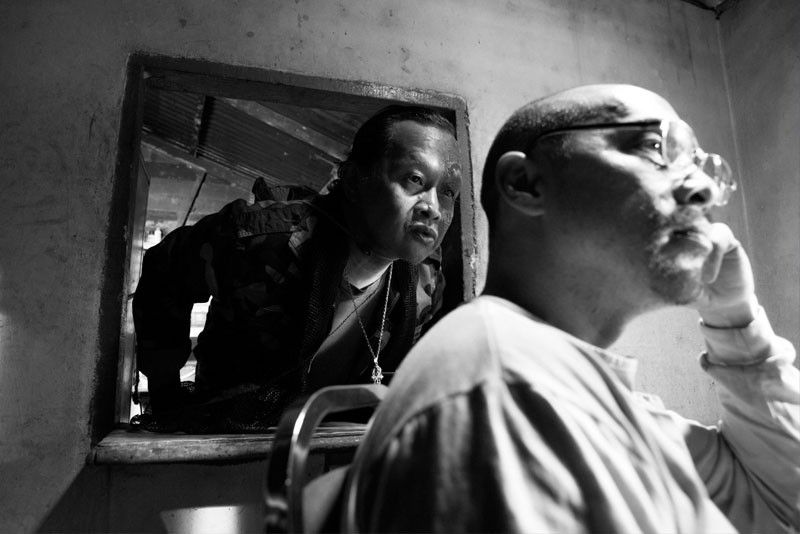Stories from a Troubled Archipelago

But would you sing, and rival Orpheus’ strain. The wond’ring forests should dance again; the moving mountains hear the powerful call, and headlong streams hang listening to their fall! — Alexander Pope
Orpheus, the son of god Apollo and the muse Calliope, is a poet of unparalleled prowess. In what is probably the most famous story surrounding him, his searing song lamenting the untimely death of his wife Eurydice moved Hades so much that the god of the underworld allowed him a trip to his realm to fetch his beloved. Hades’ only rule is that Orpheus cannot look back at Eurydice as she follows him back to the land of the living. Orpheus’ stubborn humanity gets the best of him and he checks on his love who, true to Hades’ warning, disappears the very moment he disobeys the god.
The fate of Hugo Haniway, the esteemed poet of Lav Diaz’s Ang Panahon ng Halimaw, seems to be carved from the Greek myth. Lorena, his wife, has gone to Ginto, a town under the clutches of a cultish paramilitary group, and has not returned. Depressed and despondent, Hugo, who is now less a poet and more a drunkard whose invisible conscience does most of the singing, is urged to follow Lorena to the ironically named town that feels more ghoulish than golden. This is where Diaz separates from the famed myth. Hugo never sees Lorena. Instead, he sees a populace beholden to all sorts of stories spread by the trigger-happy men and women under the employ of a demagogue whose misshapen head bears not one but two faces. One face does the blabbering of impassioned nonsense, while the other, which resembles the mug of Ferdinand Marcos, is in a state of perpetual contemplation, awaiting the right time for a return. Hugo’s challenge now is not the temptation of looking back at his beloved but to have his personal aches deter him from his responsibilities as an artist living in a country whose tainted culture has forced it to be subservient to abusers.
Diaz is an ardent believer in the power of culture, the influence of songs and stories.
That belief, however, is not new. The Greeks believed that Orpheus’s sung lyrics could move mountains and deities. Marcos created tales of aswangs and other monstrosities to deter communist uprisings in the provinces. The first revolution in EDSA was one where the crescendos of nationalistic anthems were louder than guns and bombs. Today, clever distortions of truths are flooding all the corners of the internet to the glee of demagogues who are grossly satisfied with just a veneer of virtual satisfaction to support their inhumane regimes. The sad part of this history of how stories are used to carve up a nation is that dissent is curiously disappearing, with the artists and poets of our time seemingly content with whispers and whimpers as opposed to their more pronounced presence in the past. The Filipino artist, it seems — or at least from the perspective of Diaz in Ang Panahon ng Halimaw — has cowered in apathy and compromise, preferring the safety and comfort of personal satisfaction to the responsible pursuit of truth.
Diaz doesn’t see just a Eurydice that needs saving from the underworld. He sees a troubled archipelago that has long been blinded by a culture that has been dumbed down to the point of ignorance. Boxing matches, inane jingles, filmed sex lessons, and expletive-ridden pronouncements now tickle the fancy, turning nobodies into national leaders. Intelligence is now frowned upon. Culture is commoditized and commercialized. The nation has been reduced to numbers appearing in surveys. Diaz’s film poses a reasonable request. Artists have responsibilities not just to themselves but to the nation that has shaped their rich consciousness. In a state where stories are used to warp reality to favor those with irresponsible intentions, it is the duty of the artist to use his words, his songs, his art, to, in the words of Alexander Pope, make the forest dance again, to make the moving mountains hear, and the headlong streams to listen.
Stories should never be this nation’s downfall. They should be its salvation.















